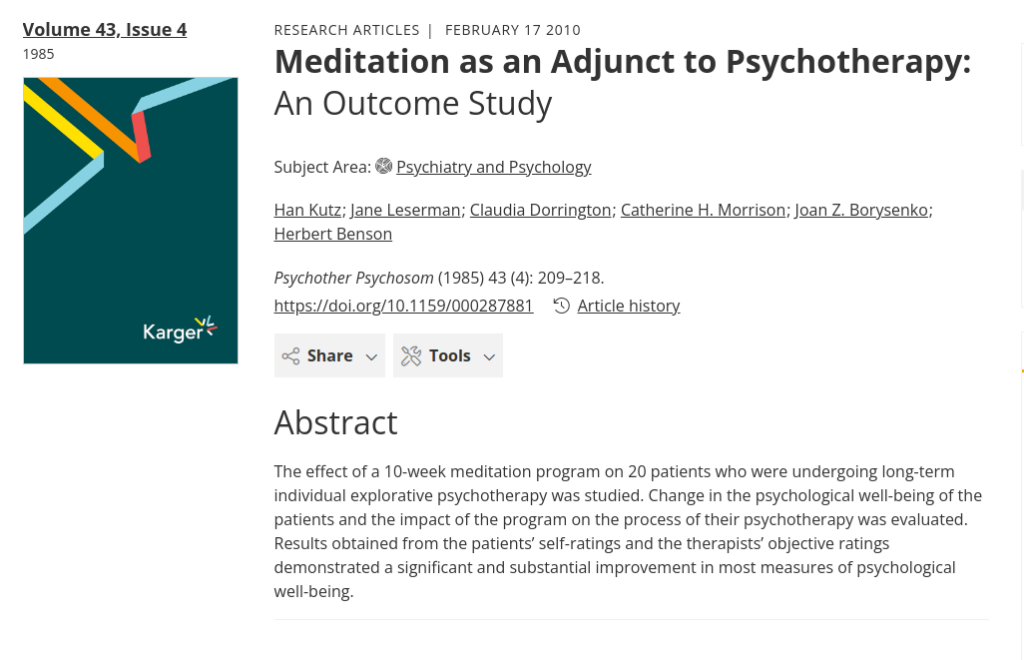Publication
Psychotherapy and Psychosomatics
43 (4): 209-218
Abstract
The effect of a 10-week meditation program on 20 patients who were undergoing long-term individual explorative psychotherapy was studied. Change in the psychological well-being of the patients and the impact of the program on the process of their psychotherapy was evaluated. Results obtained from the patients’ self-ratings and the therapists’ objective ratings demonstrated a significant and substantial improvement in most measures of psychological well-being.
Web and Email Links
Related Listings
Journal
The International Journal of Clinical and Experimental Hypnosis
Procedures for self- and hetero-hypnotic induction and for the elicitation of the relaxation response appear to be similar. Further, before experiencing hypnotic phenomena, either during a traditional or an active induction, a physiological state exists which is comparable to the relaxation response. This state is characterized, in part, by decreased heart rate, respiratory rate, and blood pressure. After the physiological changes of the relaxation response occur, the individual proce […]
Journal
NeuroReport
Previous research indicates that long-term meditation practice is associated with altered resting electroencephalogram patterns, suggestive of long lasting changes in brain activity. We hypothesized that meditation practice might also be associated with changes in the brain's physical structure. Magnetic resonance imaging was used to assess cortical thickness in 20 participants with extensive Insight meditation experience, which involves focused attention to internal experiences. Brai […]
Journal
J Occup Med
The efficacy of meditation-relaxation techniques has been widely researched in the laboratory, but their effectiveness for management of stress in organizational settings is still relatively unexplored. The present study compared relaxation and control conditions as part of a program of stress-reduction in industry. A total of 154 New York Telephone employees self-selected for stress learned one of three techniques--clinically standardized meditation (CSM), respiratory one method medi […]

